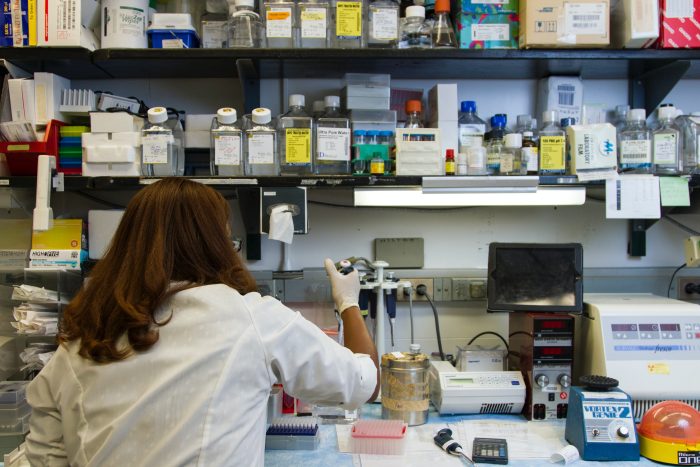The degree programme you will need to follow is:
Master of pharmacy (MPharm)
The first step to becoming a community or hospital pharmacist is to complete a GPhC-accredited Master’s degree in pharmacy, more commonly known as an MPharm.
- MPharm degrees are integrated courses, which combine undergraduate and postgraduate- study into one programme.
- Duration: Four years to complete.
- Entry to the profession without a degree or with a HND only is not possible.
A variety of UK institutions provide MPharm courses, to check which programmes are accredited, see GPhC accredited MPharm degrees. Some accredited universities include:
- Aston University
- Cardiff University
- Durham University
- Kingston University London
- Liverpool John Moores University
- Newcastle University
- Robert Gordon University
- Queens University Belfast
- University of Bradford
- University of Central Lancashire
- University College London
- University of East Anglia
- University of Nottingham
- University of Strathclyde
- University of Sunderland
- University of Sussex
- University of Ulster.
Example: Entry requirements:
Requirements are often different in terms of how they are articulated so it may be in points or grades at A level as well as requiring specific choices e.g., science subjects such as two sciences.
Some specifically mention qualifications apart from A level, such as BTEC Applied Science. T level’s are newer to universities and are accepted by very few Universities for Pharmacy (Mpharm).
Examples:
Newcastle University: Require grades ABB-AAB. This must include Chemistry, either Mathematics or Biology, and one further rigorous academic subject (we do not accept General Studies or Critical Thinking). You are required to obtain a pass in the practical element of any science A-level taken.
Aston University: Requires you to have BBB at A-level including chemistry and one other science subject.
They do mention BTEC and accept and this has to be Applied science (extended diploma) and DDD. They are not accepting T level.
Sunderland University: Typical offer is 120 UCAS Tariff points (BBB at A level), from a combination of acceptable Level 3 qualifications which may include: A Levels, T Levels, BTEC Diplomas/Extended Diplomas, Scottish and Irish Highers, Access to HE Diplomas, or the International Baccalaureate.
A Levels must include Chemistry and one other science subject at Grade B or above excluding General Studies.
Work Experience:
Get experience either in a setting where you work with the public or in a local pharmacy that will give you exposure to working with prescriptions and drugs. Any knowledge and experience of the profession will be helpful.
You could also apply to volunteer in hospitals through the Royal Voluntary Service.
You should also consider becoming a student member of the Royal Pharmaceutical Society (RPS). This provides access to resources, networking opportunities and support throughout your studies.
Post MPharm:
Once you’ve finished your degree, you must complete one year’s foundation training. Health Education England runs the National Foundation Trainee Pharmacist Recruitment scheme through Oriel.
You need to apply to the scheme in June in the year before you finish your MPharm (your third year) if you want to start your foundation training straight after your degree. The pharmacist foundation scheme in Scotland is managed by NHS Education for Scotland. For Wales, see Health Education and Improvement Wales (Pharmacy).
Foundation training places are also advertised in trade magazines such as the Pharmaceutical Journal and Chemist and Druggist.
You can also search for accredited training premises via the GPhC website.
Entry Requirements:
There are no set university entry requirements but generally you need:
- three A-levels or equivalent in chemistry and a second science or maths, typically offers range from AAB to BBB
- pharmacy degrees with a foundation year may have lower grade requirements
- GCSEs are considered alongside A-levels, with most schools of pharmacy expecting a minimum of five GCSEs including maths, English language and one science.
- some universities accept vocational qualifications such as BTEC Level 3, National Extended Diploma in Applied Sciences or the Access to HE Diploma. The new T level is still new to universities, and you will need to check if thinking of this route


